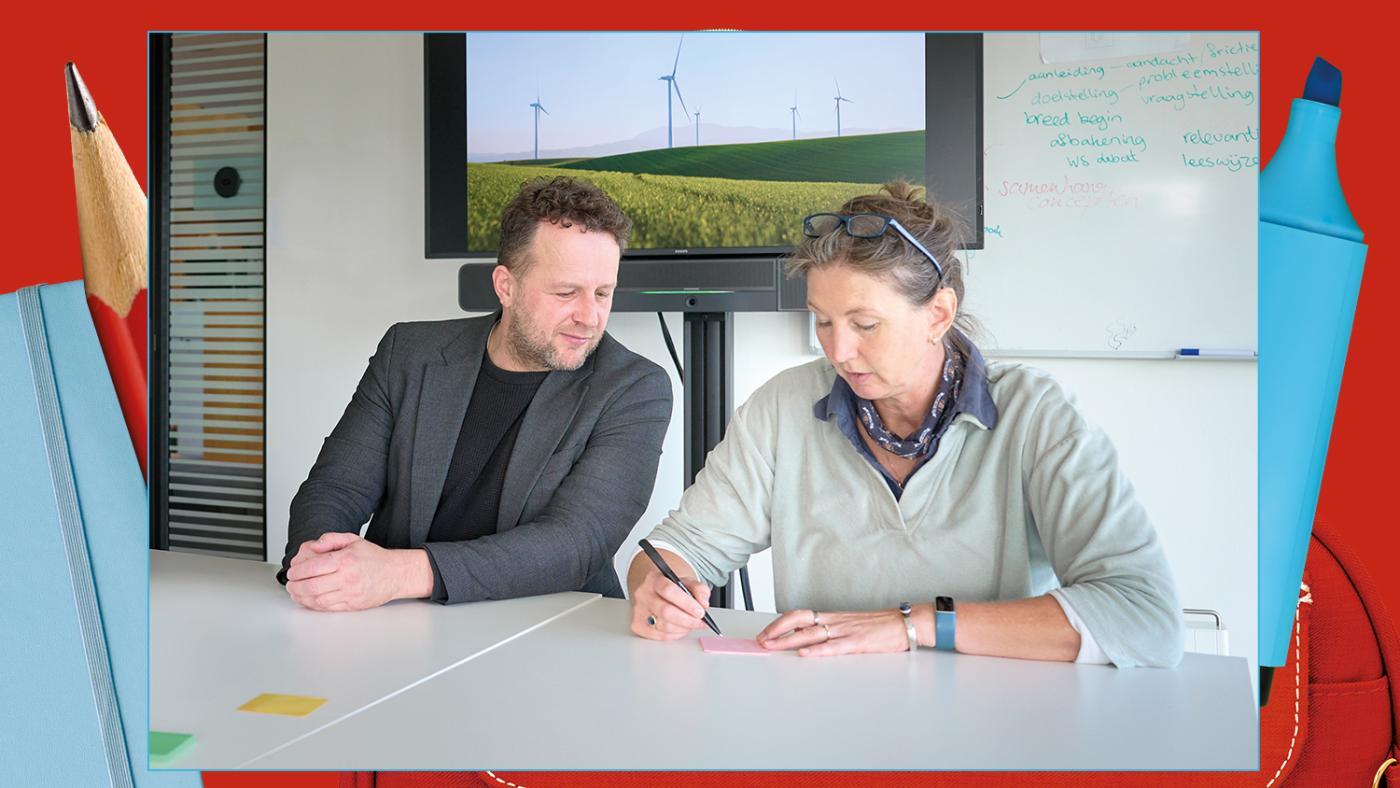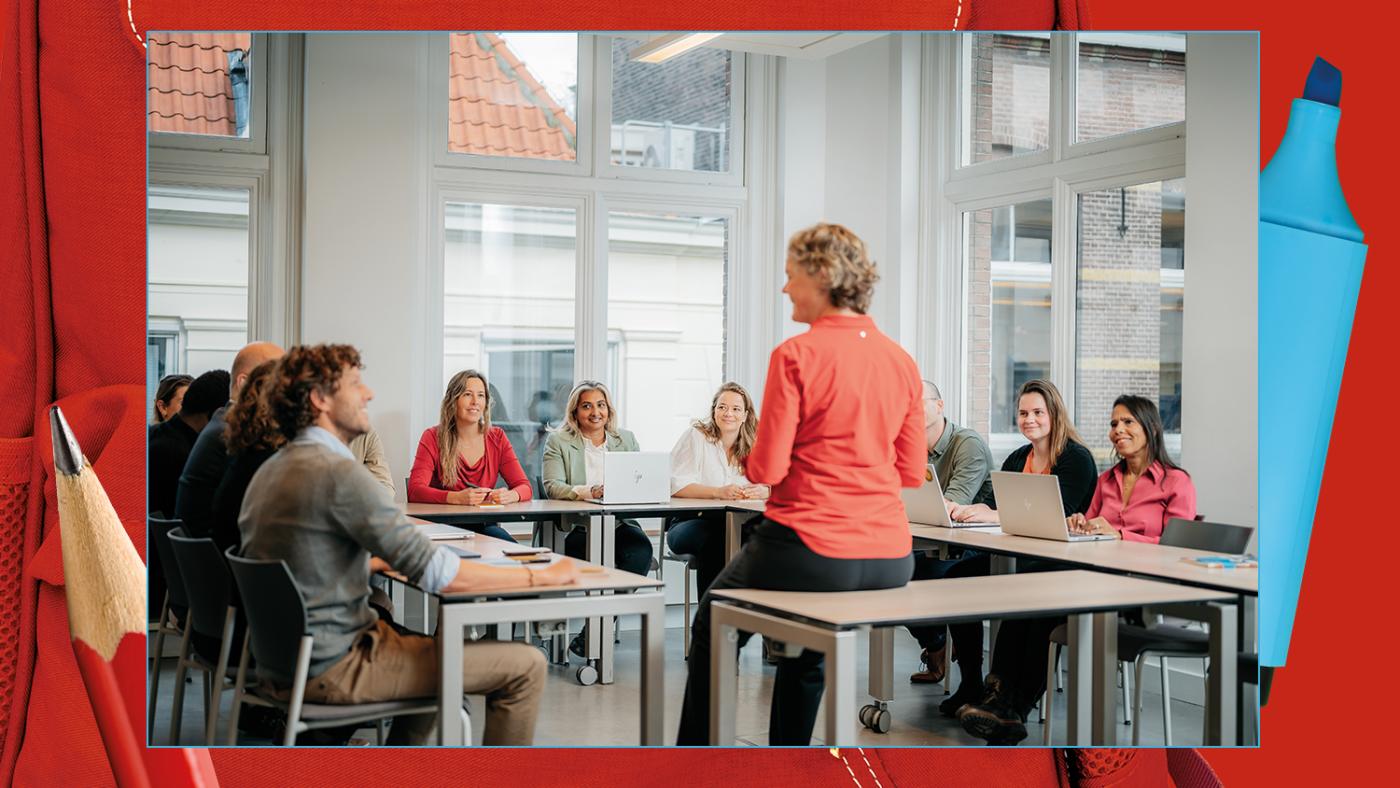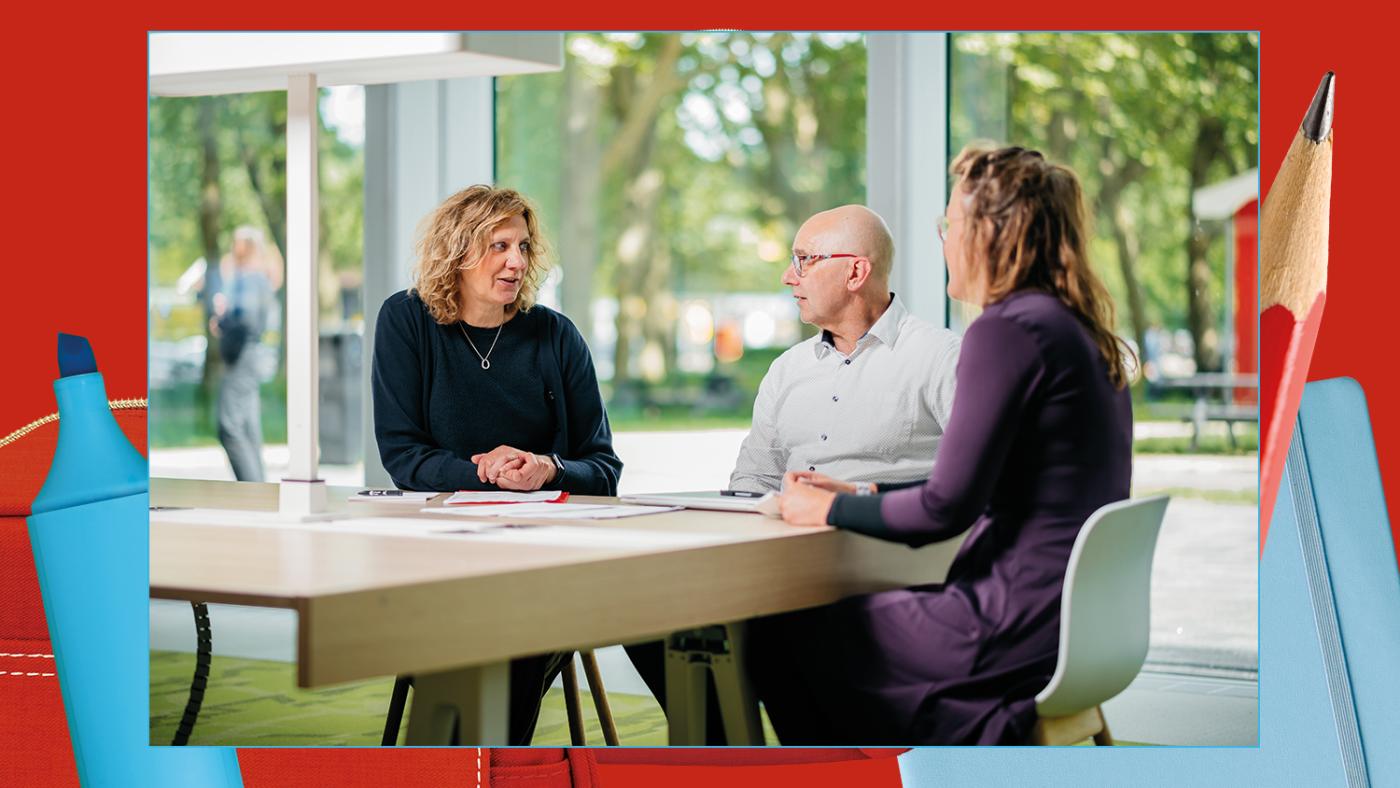UU lecturers about teaching extension courses
‘Students come here to get something and contribute something’

Interacting with the professional field is one of the main reasons why Professor of Land & Property Development, Edwin Buitelaar, enjoys teaching extension courses. In January, he will teach the course Spatial Planning in a Changing Climate for the third time. ‘In courses like this, students don't just come to learn something, they also come to contribute something,’ he says. 'That applies to me too. It's an exchange of knowledge between me and the students, as well as among the students themselves. That's also part of the course's success. The participants are people in the middle of their careers, often in strategic positions. We discuss specific social issues that we aim to address, bringing people from different worlds together and allowing them to communicate with each other. I'm sometimes surprised by what I hear. I learn things from students that I didn't know previously.'
Law lecturer Marc Veldt, who teaches the course Legal Communication from Government to Citizens, can relate. 'Our aim is for participants to bring their practical experience and apply the knowledge they have gained in the workplace through a project. So, it's not just a matter of acquiring knowledge, but also of applying it. That's why it's important that people from different fields, such as lawyers or communication officers, in our case, take this course. After all, they help each other and brainstorm together about how they can implement something in their own organisations. In that sense, it's not purely a writing course; it is also a policy course. Therefore, the practical experience that participants bring is essential. This doesn't happen much in initial education, as regular students have little to no work experience.'

Edwin Buitelaar (left).
Even though their employer is paying for everything, the students are like sponges, they absorb everything and appreciate everything.
It seems obvious that continuing education is fundamentally different from the one provided for first-time bachelor's and master's students. ‘The intrinsic motivation is different,’ explains Anne van Ewijk, Assistant Professor in Economics. 'In my course, Understanding and Applying Design Thinking, I notice that professionals take the course of their own volition. Even though their employer is paying for everything, they are like sponges, absorbing everything and appreciating everything. Their experience contributes to the learning process, but I also enjoy it myself. All the theories and models we discuss can be immediately applied to something the students are working on. Additionally, I am a generalist who is interested in learning from practical experience. That already appealed to me before UU, when I worked as a consultant and taught at a university in the United Arab Emirates."
Van Ewijk considers the various backgrounds that students bring to the course to be an advantage. "The entry level is always a diploma from a university of applied sciences, but in my module, I have participants from both the private and public sectors. People from the fire brigade, the Ministry of Defence, the banking sector, the cultural sector, education, or healthcare. It's all there. The fact that their backgrounds and expertise differ is not a problem for me. The learning effect is actually great, because I'm not the only teacher. For example, one person may excel at making connections, while another is skilled at conducting interviews. One may be theoretical, while the other is more action-oriented. Everyone learns from each other. The only thing that can be difficult about working with professionals is that their experience can make them long-winded, so you have to steer them in the right direction in time," she laughs.
As a teacher, you don't do it alone. We always teach the modules with a few colleagues

For all three lecturers, the hours spent teaching professionals are part of their teaching load. With modules that are taught once every few years and last between three and six months, they believe this is a manageable approach. ‘We don't do it alone,’ says Buitelaar, from Geosciences. "We always teach the modules with a few colleagues. Once every few weeks, we take care of a half-day, usually a Friday. With an average of fifteen students per module, that means about ten contact hours per year. Developing a course generally takes more time. In my case, a colleague asked me to participate. He felt that the topics we cover should be brought together, and I thought that was a good idea. Things went quite smoothly, but we may have been lucky. We sensed what was in demand. But it doesn't always go well. It's an investment in something with the risk that it won't work out."
Veldt and Van Ewijk reported to the director of their faculty, who is responsible for extension courses. "This stemmed from a personal interest," says Veldt. ‘I have a background in writing skills, and I wanted to do more with that. I had already run a trial module, a sort of pilot, on writing clearly for the honours programme in Law. I thought it could also be useful for professionals." Van Ewijk: “I had done a course myself on design thinking and the lean method, and I thought that such material could be valuable for adult education. I didn't have to spend much time developing the course, and I had already conducted some market research myself. I wondered what UU could do differently from other parties on the market. How could I make this course distinctive? The answer was a link to scientific literature.”
According to Van Ewijk, the scientific underpinning of practice is the added value of taking an extension course at a university. "Through these courses, UU can share new scientific insights, which is part of the impact UU can have. Most workers do not read articles published in scientific journals, and when the media reports on those articles, the nuance sometimes disappears. In such extension courses, you can link that nuance to practice, which is a way of communicating science."
Our extension courses are a helping hand to society, showing what we do and how it relates to practice
According to Buitelaar, parts of Utrecht University may have been slow to catch up to this, but continuing education is now high on the agenda. "As a university, we must play a role in lifelong learning, not least because it is a helping hand to society. We can show what we do and how it relates to practice. The added value is not in a ready-made recipe book, but in learning to think about big, but very concrete issues."
Van Ewijk observes that UU is not well known as a major provider of professional education. The added value of a university-level course is not obvious to everyone. She believes there is still work to be done in this area. "Universities generally do not have a professional marketing team. They see it as a moral duty to offer extension courses, but they don't seem particularly keen to sell it," she laughs. "They may not consider it ethical, and if it becomes a success, it can also be quite difficult to organise. Most lecturers, however well-meaning, promote the courses through their own network on LinkedIn, but that's as far as it goes. They enjoy sharing their expertise, but when it comes to networking, no, they'd rather not. In that respect, there is still a world to be won."

Hanne ten Berge (left)
Training for lecturers: ‘We need to identify where the students’ questions lie’
Since 2018, lecturers at Utrecht University have been able to follow a course in which Hanne ten Berge and her colleagues from Educational Development & Training answer all sorts of questions. How do you supervise a group of professionals? What does a group need? What should lecturers do differently? Ten Berge has been an educational advisor and teacher trainer at Utrecht University since 2002. She was one of the founders of the course on teaching methods for professionals.
"Most lecturers who teach professionals have been teaching in initial university education for years, so they have experience. Nevertheless, as a lecturer, you must consider a number of things. The fact that professionals have knowledge and experience makes them a different target group. It's not just about what lecturers have to say, as the students will also have something to say. Therefore, lecturers should utilise the valuable knowledge and experience within the group."
"In addition, as a teacher, you need to make a connection with specific work practices. These people are taking a course for a reason. They want to be able to apply what they learn immediately, so you want to offer students the opportunity to raise issues and apply the knowledge they acquire in their work situation. As a teacher, you need to identify where the questions lie. This requires coordination, which may mean developing the curriculum in collaboration with the professional field."
"A safe learning environment is important in this regard. This group may gradually realise that things need to be done differently. Teachers need to guide them in the right direction. Sometimes people are too eager to tell others what they know, particularly those who have a certain status in their organisation. Can you get these people to look at themselves critically? Can you get them to go along with it? As a teacher, you must be able to react to that as well. We are here to assist lecturers who could use some help with that."

This is an article from DUB's Lang zullen we leren! (Long may ww learn!) magazine, which was made in collaboration with Utrecht University's Continuing Education programme. The magazine can be found in several buildings of the university but all the articles from the magazine are also available online. Over the next two months, DUB's website will feature several of those articles and stories, as well as publish a few additional online-only articles about continuing education. You can find all the articles related to the magazine here.
Comments
We appreciate relevant and respectful responses. Responding to DUB can be done by logging into the site. You can do so by creating a DUB account or by using your Solis ID. Comments that do not comply with our game rules will be deleted. Please read our response policy before responding.